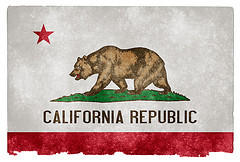
California: Significant Tax Changes Recently Enacted
Posted on November 19, 2013 by Grant Brisacher
Synopsis:
On November 6, California voters approved propositions that:
• Temporarily increase personal income and sales and use tax rates;
• Mandate the previously optional single-sales factor apportionment formula for corporate income tax; and
• Approved a new gross receipts tax for the City of San Francisco, to take effect in tax year 2014.
Note that these changes are expected to impact a significant number of individual and business taxpayers in California.
Issue:
Personal Income Tax Rates:
California personal income tax rates are increasing for individual taxpayers with California taxable income of more than $250,000 per year – and the tax rate increase is retroactive to January 1, 2012. The law waives the underpayment of estimated tax penalty that results from the retroactive tax law change, provided that the taxpayer pays his or her tax liability in full by April 15, 2013. The personal income tax rate increases expire after the 2018 tax year.
The current rate of 9.3% (10.3% for taxable incomes over $1 million) will be increased as follows:
The proposition also increases the sales and use tax rate from 7.25% to 7.5% effective January 1, 2013. This increase will expire after four years.
Corporate Apportionment:
While business taxpayers were previously permitted to elect single-sales factor apportionment or use the standard double-weighted sales factor apportionment formula, the proposition requires the use of a single-sales factor apportionment formula, effective for tax years beginning on or after January 1, 2013. The new law also requires market-based sourcing for sales other than sales of tangible personal property.
New Gross Receipts Tax:
San Francisco voters approved Proposition E which phases out the city’s existing 1.5% payroll tax in favor of a gross receipts tax. The gross receipts tax will apply to businesses operating in San Francisco that have gross receipts of at least $1,000,000, with a graduated tax rate based on the amount of a business’ gross receipts. The tax will be phased-in over a five-year period beginning in 2014, with the payroll tax phased-out over the same five-year period.
photo credit: California Grunge Flag via photopin (license)

